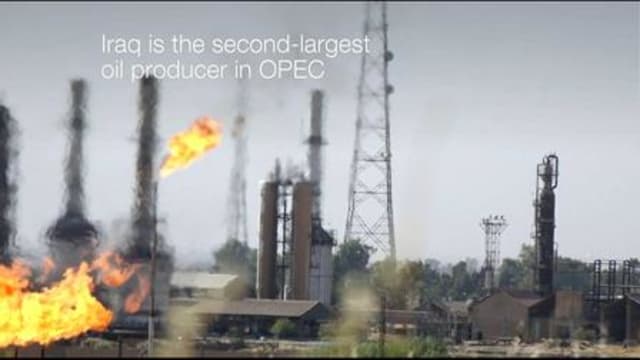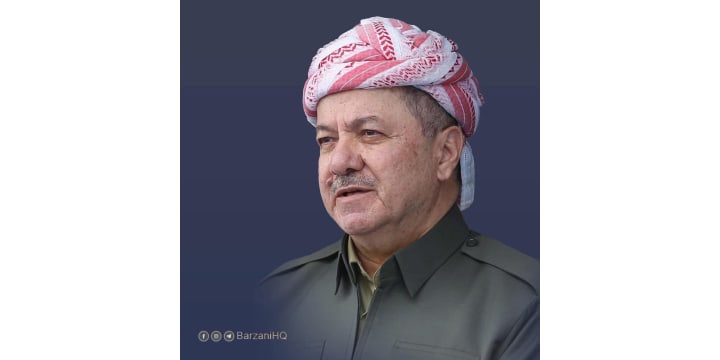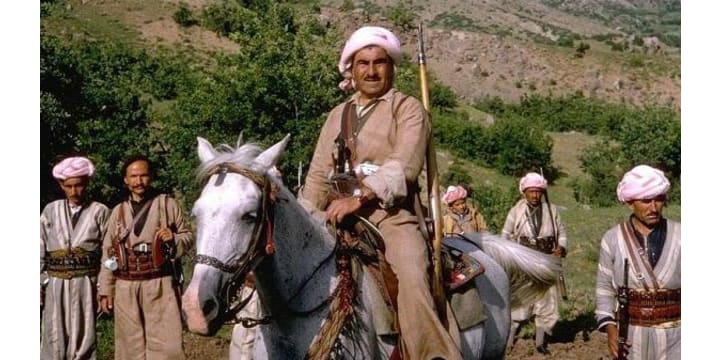
How, in the name of religion, has the Iraqi oil revenues dissipated?
Many people wonder how the second largest oil producer in OPEC, after Saudi Arabia, and the fourth internationally, cannot secure enough electricity to its citizens, but suffer from a severe shortage, as the national Grid cannot supply the citizens with electricity for more than eight hours a day, especially in the summer of Iraq.
This wonder is compounded by the fact that the people of this state, the Iraqis, are at the same time suffering from a severe shortage of irrigation and drinking water in the summer as well, although in their country there are two great rivers with many tributaries, the Tigris and Euphrates, which are credited with the emergence and development of three of the greatest civilizations in human history: The Sumerian, The Babylonian and The Abbasid.
Unlike the others, the Iraqis do not wonder at all, they see with their eyes, they hear with their ears, and they comprehend by using their brains, how billions of dollars generating monthly from oil and hundreds of millions of dollars from customs, taxes and other sources, are evaporated from their state coffers.
The suffering of Iraq, which has been worsening in the past 15 years, is not limited to electricity and water shortages, the system of public service provision (health, education, housing, transport, sanitation, etc.) is almost completely collapsed while poverty level is more than 30% and unemployment is 20%. All these make the Iraqis explode periodically, as is the case now.
In all the escalating rage of the People of Iraq, the slogan of (fighting the administrative and financial corruption) has been leading all the other slogans. Its ceiling now has risen to the level of demanding radical political and administrative changes to ensure that capable and transparent people, at the federal, Regional and local levels, are appointed, people who know how to invest Iraq’s considerable financial wealth in the development of the country and the welfare of the Society and do not steal from the public coffers. The current devastation caused by misusing the public money with ease, smoothness and contentment and without fear of reckoning and retribution, and the hands of the leaders and cadres of the ruling parties (predominantly Islamic) Protecting them and their corrupt operations under the command and control of the leaderships. In a number of questioning sessions of ministers and other senior executives held by the House of Representatives, which expired five weeks ago, the existence of "economic committees" became known which manage public money robberies. These committees were formed by the influential parties in the state to work with ministers, heads of institutions, Directors General of State departments, governors and Governorate councils. It is known that these executive functions are shared by these parties in accordance with the system of quota. This system gives each party a number of positions commensurate with the size of its representation in the Federal Parliament, the Kurdistan Regional parliament and the Provincial Councils. The occupiers of these positions have an obligation towards their parties, through the "economic committees", to provide funds taken in the form of briberies (commissions) paid by companies and contractors to whom contracts for the execution of public projects are awarded. Large commissions (millions and tens of millions of dollars) are often paid to personal accounts or fictitious companies outside Iraq. Most of these officials who also receive their own bribes, having become millionaires (money and real estate) within a few years, and in this regard stark and shocking details have been revealed through the periodic reports of the Integrity Commission and the parliamentary Integrity and finance committees, but the protection afforded by the parties to these People have secured strong backing for many of them to escape accountability and punishment. One consequence of this is that hundreds of important development projects have been disrupted, with the bribe-giver and the receiver, as the facts have shown, often share the financial allocations for these projects, with very little remaining for their implementation.
The funds obtained in this way are used by the parties to strengthen their influence in the state by recruiting more members, supporters and secure more votes in the parliamentary and local elections. That was, in fact, a major looting, popularly known as the Farhoud, and it is now established that there are a few hundred billion dollars in state revenues that there are not any indication of their disbursement. Before his death in late 2015, the former chairman of the parliamentary Finance Committee, Deputy Ahmed Chalabi, announced that the amount of money which was unaccounted for, was over US$300 billion, with other sources put the sum atUS$500 billion, and there are reports that some of the money had found their way to Iran, which had been in need of foreign currency after economic sanctions imposed by the United States and other countries.
Last month, the central Bank of Iraq disclosed in a report that total foreign exchange earnings in the years 2005-2017 amounted to $706.23 billion. A few days later, a member of the Finance Committee of the former House of Representatives, Magda Tamimi said that Iraq's revenues from 2004 to mid-2018 amounted to 1032 trillion and 207 billion Iraqi Dinars (about US$900 billion). The Iraqis have not seen any positive impact on their lives from these two astronomical figures. Critics of the current and former governments often argue that they have not built an industrial plant, an agricultural project or a dam, they have not commissioned an international road and has not constructed a new international airport (with the exception of the Najaf airport, which was controlled by the five Islamic parties, which dominate the Najaf governorate council, and the government of Baghdad could not take control of it until it was invaded by the protesters last month, demanding a change in its corrupt party administration, which happened. It is a great paradox that all the large economic and service projects that are now in place are legacies of the previous regimes, and that the post-2003 governments even failed to repair the dilapidated ones.
The article has been written by Adnan Hussain, the Veteran Iraqi writer on 08-08-2018 and translated by KDP Foreign Relations Office.

